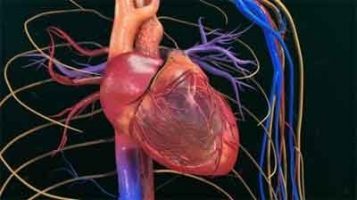- Home
- Editorial
- News
- Practice Guidelines
- Anesthesiology Guidelines
- Cancer Guidelines
- Cardiac Sciences Guidelines
- Critical Care Guidelines
- Dentistry Guidelines
- Dermatology Guidelines
- Diabetes and Endo Guidelines
- Diagnostics Guidelines
- ENT Guidelines
- Featured Practice Guidelines
- Gastroenterology Guidelines
- Geriatrics Guidelines
- Medicine Guidelines
- Nephrology Guidelines
- Neurosciences Guidelines
- Obs and Gynae Guidelines
- Ophthalmology Guidelines
- Orthopaedics Guidelines
- Paediatrics Guidelines
- Psychiatry Guidelines
- Pulmonology Guidelines
- Radiology Guidelines
- Surgery Guidelines
- Urology Guidelines
PARTNER 2A trial data shows similar outcomes for TAVR and SAVR in severe Aortic Stenosis

Findings of PARTNER 2A trial data reported today at the 31st annual Transcatheter Cardiovascular Therapeutics (TCT) scientific symposium show similar outcomes for TAVR and SAVR in severe Aortic Stenosis.
Five-year results from the PARTNER 2A trial found that patients with severe aortic stenosis (AS) and intermediate surgical risk who underwent transcatheter aortic valve replacement (TAVR) had similar rates of death and disabling stroke compared to those who had surgical aortic valve replacement (SAVR). However, TAVR using a transthoracic approach had poorer outcomes compared to SAVR.
“In the longest follow-up for intermediate-risk patients with severe AS, TAVR and SAVR had similar rates of death or disabling stroke,” said Vinod H. Thourani, MD, Chair of the Department of Cardiac Surgery at Medstar Heart and Vascular Institute. “Therefore, TAVR should be considered as an alternative to surgery in intermediate-risk patients with severe aortic stenosis. However, in patients without acceptable transfemoral access, surgery may be the preferred alternative.”
Two-year results from the PARTNER 2A trial concluded that TAVR was similar to surgery for the primary endpoint of death or disabling stroke in patients with severe AS and intermediate surgical risk. However, there are limited data on longer-term clinical outcomes and bioprosthetic valve function in this population. The goal of the current trial was to compare the key clinical outcomes, bioprosthetic valve function, and quality-of-life measures at five years for TAVR versus surgery.
Researchers randomly assigned 2,032 intermediate-risk patients with severe AS to either TAVR or SAVR at 57 centers. The two-year primary endpoint was all-cause death or disabling stroke in the intention-to-treat (ITT) population. At five years, all primary and secondary clinical and echo endpoints were analyzed in both ITT and pre-specified as-treated (AT) populations.
At five years, event rates for the primary endpoint of death or disabling stroke were 47.9% after TAVR and 43.4% after SAVR (HR: 1.09; 95% CI: 0.95 to 1.25; P=0.21). In the transfemoral cohort, there also was no difference at five years (44.5% TAVR versus 42.0% SAVR; HR: 1.02; 95% CI: 0.87 to 1.20; P=0.80). However, in the transthoracic cohort, the rate of death or disabling stroke was significantly higher after TAVR (59.3% versus 48.3%; HR: 1.32; 95% CI: 1.02 to 1.71; P=0.03). In addition, early improvements in functional status and quality of life were maintained through five years for both TAVR and SAVR patients.
The PARTNER 2A study was funded by Edward Lifesciences. Dr. Thourani disclosed grant/research support from Edwards Lifesciences, Abbott Vascular, Boston Scientific, JenaValve and Cryolife; sitting on Steering Committees for Edwards Lifesciences, Abbott Vascular, Boston Scientific, JenaValve, Cryolife, and Gore Vascular; and honoraria from Edwards Lifesciences, Abbott Vascular, Boston Scientific, JenaValve, Cryolife, and Gore Vascular.

Disclaimer: This site is primarily intended for healthcare professionals. Any content/information on this website does not replace the advice of medical and/or health professionals and should not be construed as medical/diagnostic advice/endorsement or prescription. Use of this site is subject to our terms of use, privacy policy, advertisement policy. © 2020 Minerva Medical Treatment Pvt Ltd